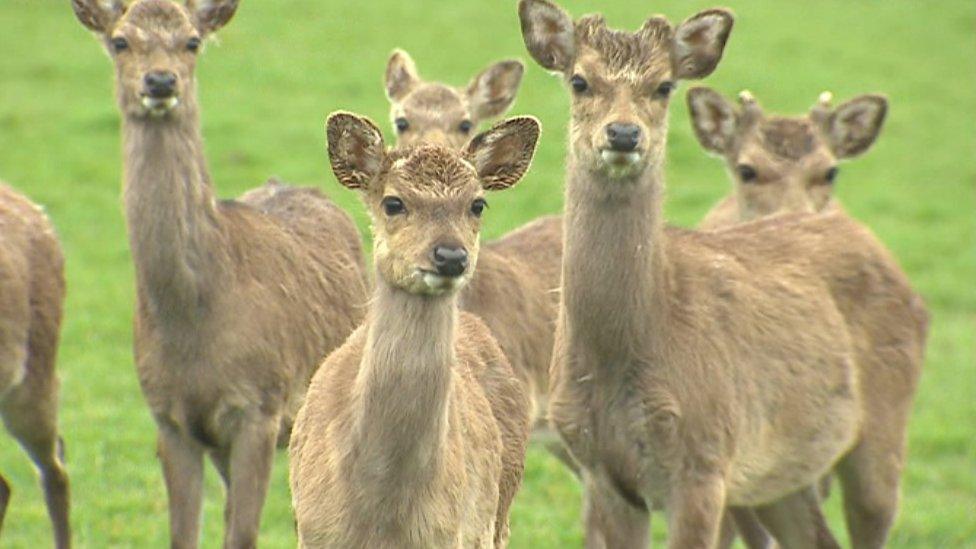Brexit: Welsh farmers 'lag behind on diversification'
- Published
- comments
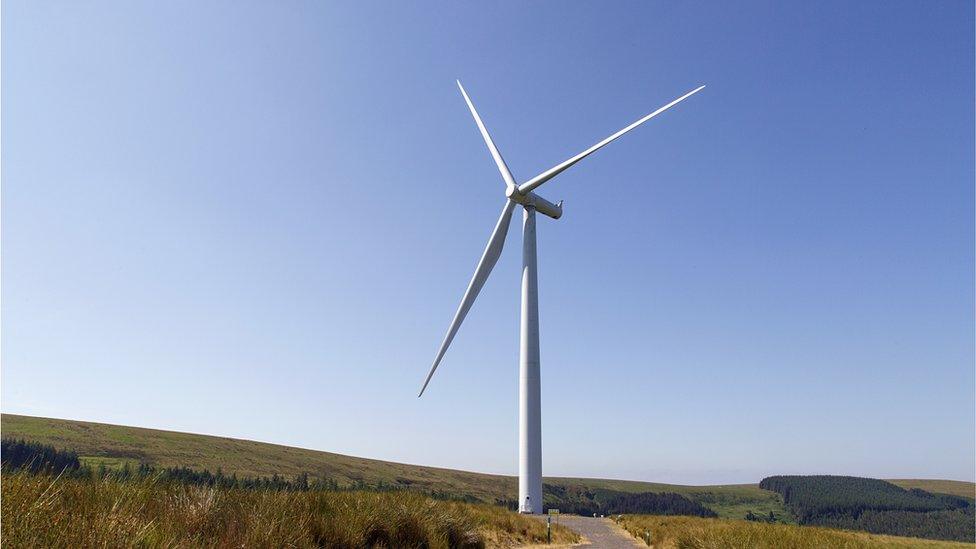
Examples of farm diversification include campsites, farm shops or putting up wind turbines
Farmers need support to become more entrepreneurial after Brexit, a report has suggested.
Researchers claimed the sector in Wales was lagging behind England when it came to boosting incomes through things like holiday lets or renewable energy.
This could be problematic given the uncertainty around exports of Welsh farm produce in future.
The Farmers' Union of Wales (FUW) said the focus needed to be on securing a good trade deal with the EU.
In recent years it has become more common for farms to supplement their income with things other than traditional agriculture - known as diversification.
However, a report prepared for the Senedd Research service by academics from Cardiff and Aberystwyth universities suggested English farms are having greater success, with over two-thirds making money this way.
Diversification revenues made up only 3.4% of total farm incomes in Wales in 2017, compared with an average of 7.7% in England.
Examples of diversifications include campsites, farm shops or putting up wind turbines.

'We were motivated by fear of Brexit'
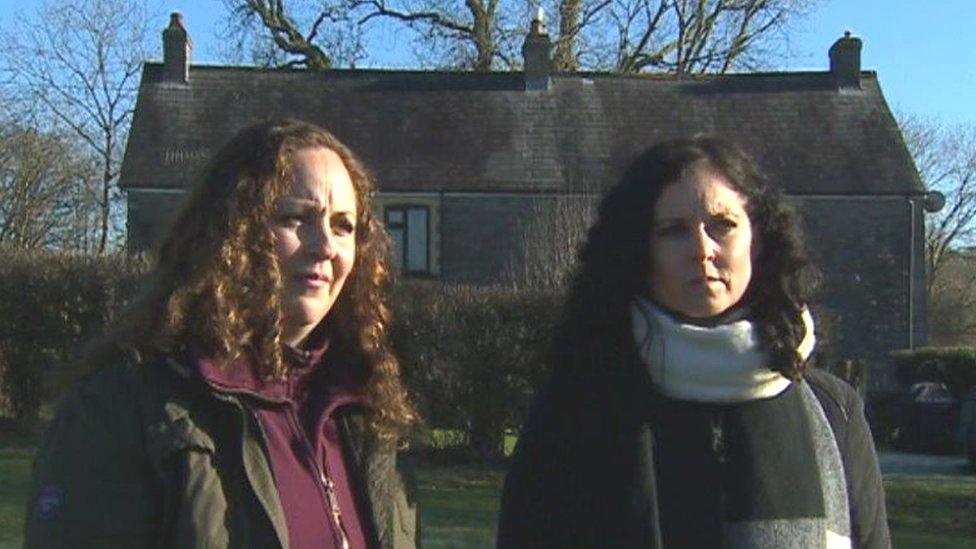
Sisters Victoria Bond and Stephanie Davies were worried about Brexit so set up a local meat delivery service
Fear about the impact Brexit could have on their farm motivated sisters Victoria Bond and Stephanie Davies from Penderyn, Rhondda Cynon Taff, to set up their own meat delivery service.
They now sell directly to locals willing to pay a premium for their grass-fed lamb and beef.
Longer term they hope to buy a refrigerated van to sell to businesses and restaurants and open a farm shop.
"We wanted to make the farm as sustainable as possible and not rely on subsidies as we didn't know which direction they were going in," Ms Davies said.
"It's going really well... so we're already looking at talking to some neighbouring farms and maybe setting up some sort of cooperative.
"In this area there's a huge opportunity for tourism - we're in the foothills of the Brecon Beacons, waterfall county. Lots of farmers are looking at glamping, converting buildings into holiday lets and things like that."

Diversification has been widely encouraged to improve the viability of farm businesses and create jobs in rural areas.
The latest figures suggested 40% of Welsh farms now include a type of diversified activity, almost double the figure 10 years ago.

Diversification revenues made up only 3.4% of total farm incomes in Wales in 2017
The time and cost involved in setting up new projects, and the remoteness of many Welsh farms were hurdles, according to the report's co-author Dr Wyn Morris, of Aberystwyth Business School.
The report suggested setting up "local learning networks", working with colleges and universities to encourage more younger people to get involved in agriculture, and government support to promote diversification projects that could provide benefits for the rural economy.
"Farmers should not treat diversification and other income sources as secondary," Dr Morris argued.
35-40%of lamb is exported
15%of beef is exported
90% of Welsh meat exports are sold into the EU
Brexit brings with it the biggest shake-up of the agriculture industry in over 40 years, with changes proposed to the subsidies farms receive and negotiations set to get underway on trade deals with the EU and rest of the world.
Glyn Roberts, president of the FUW, told BBC Wales farmers should have every support from government to have a sustainable future, which could include diversification.
"But the main function of agriculture is to provide food and to look after the countryside and the environment," he added.
- Published6 June 2018
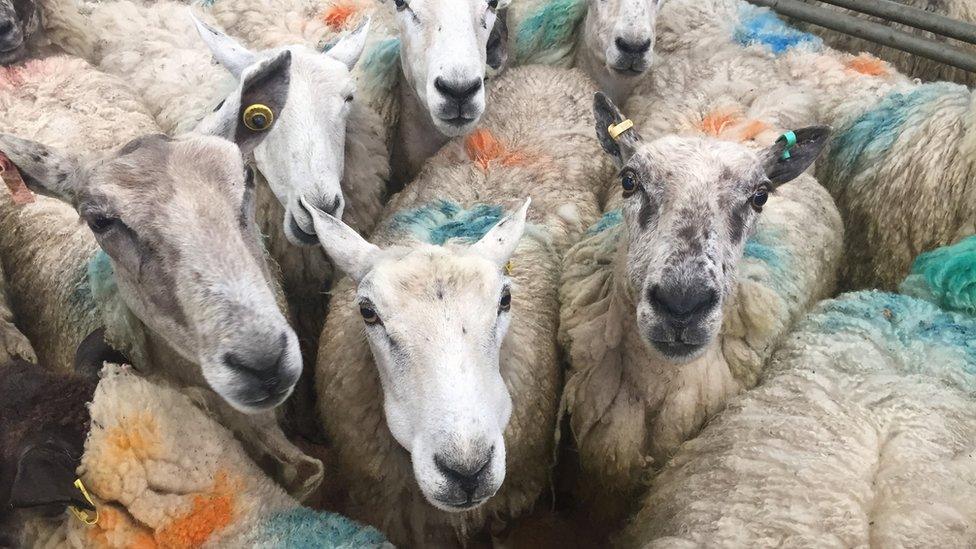
- Published4 June 2019
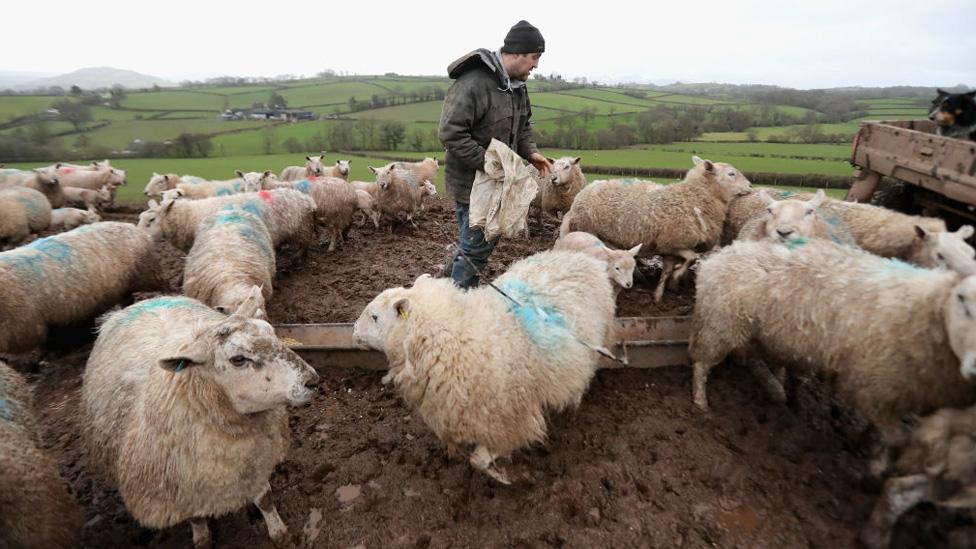
- Published12 April 2018
